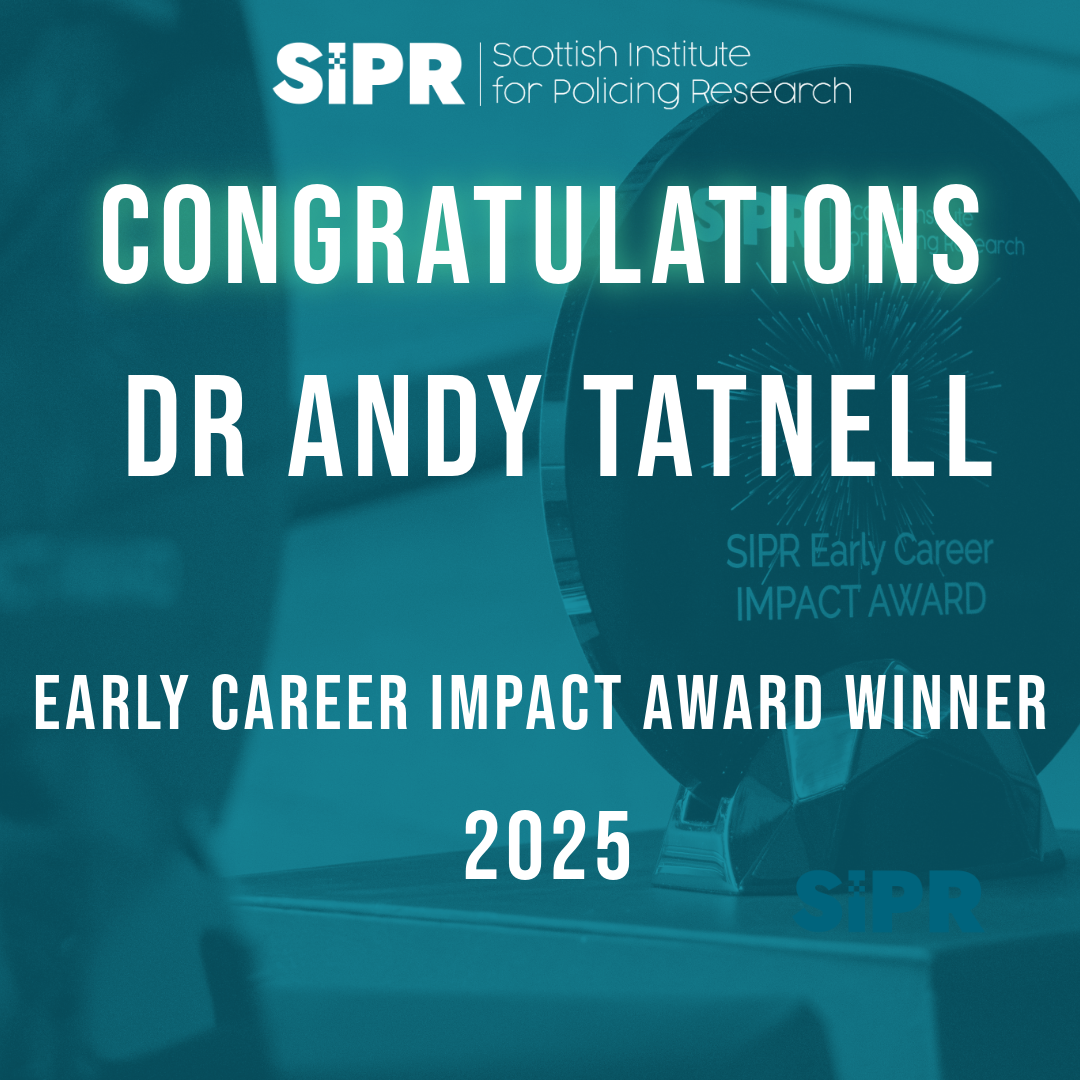By: Lorna Dennison-Wilkins
Post Graduate Research Student, Centre for Anatomy and Human Identification, University of Dundee.

The first roundtable event of the Dundee University Postgraduate Policing Research Network was held at the beginning of October 2017. The event was organised by Amy Humphrey and opened by Professor Nick Fyfe and newly appointed Honorary Professor Derek Penman. Four research students and I gave a short presentation of our field of work and these areas were then examined with focused discussion amongst all participants along the themes of ‘How can the research influence and inform policing’ and ‘The challenges of engaging with policy and practice’.
The topics presented and discussed were:
- Forensic Jewellery. Maria MacLennan. Centre for Anatomy and Human Identification. UoD.
- (In)visibility in Missing. Joe Apps. National Crime Agency / Prof.Doc, UoD.
- Predictions of Human Body Movement in Inland Waterways. Lorna Dennison-Wilkins. Sussex Police / Centre for Anatomy and Human Identification. UoD.
- An Exploration of Behavioural Consistency in Repeat Missing Adults. Claire Taylor. Psychology, Abertay University.
- Networks, Boundaries and Success in Policing Contributions to Missing Persons. Amy Humphrey. Human Geography, UoD.
Attendees were a combination of students and staff from various disciplines at Dundee and Abertay Universities, and Police colleagues in practitioner and academic roles. The advantages of having such a diverse range of participants were clear when the discussion took place. The roundtable was interesting, enjoyable and informative as it allowed for wide ranging contributions; the format of short presentations and resulting discussions allowed the attendees to benefit from a great deal of learning in a relatively short space of time.
From a personal perspective I was delighted to be able to present my work though I found keeping to the 5-minute time slot a challenge and trying to get the salient points across with brevity is a skill in itself (I need practice on this one!). The resulting discussion from all presenters raised really salient points, one of which relevant to my research of body movement in water – the crossover of my research field into geography – resulted in my referral to a representative from the geography department, a thought provoking meeting and the download of a new book chapter.
Policing perspective points were interesting and useful and it was obvious that these varied according to police area. Honorary Professor Derek Penman gave a rich consideration in his viewpoints, using his past experience and knowledge as a senior police officer in Police Scotland and that of his present role as a policing inspectorate officer and now a member of the University.
As a remote (part time) student I was so pleased to be involved in this event so that I could join with like-minded people. I valued the opportunity to hear the presentations of the other contributors and to see that although our research areas differ, our challenges bear great similarities. Although the event lasted for some hours, it felt like it had gone by so quickly, so a ‘debrief’ was initiated at the pub across the road and debate and learning continued with beer in hand.
It was agreed by all that the event was a great success and should be repeated in the future. Many thanks to SIPR for hosting the occasion.
Comments are closed, but trackbacks and pingbacks are open
This work is licensed under a Creative Commons Attribution-NonCommercial-NoDerivatives 4.0 International License



